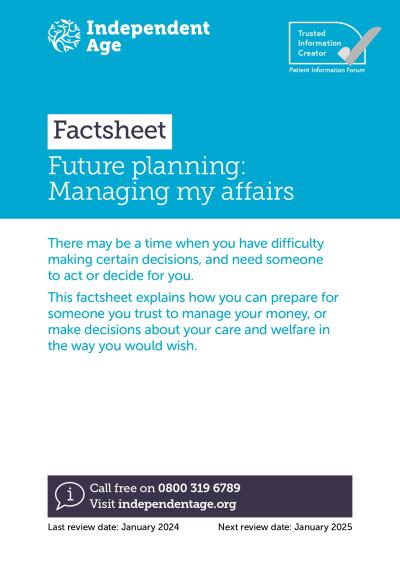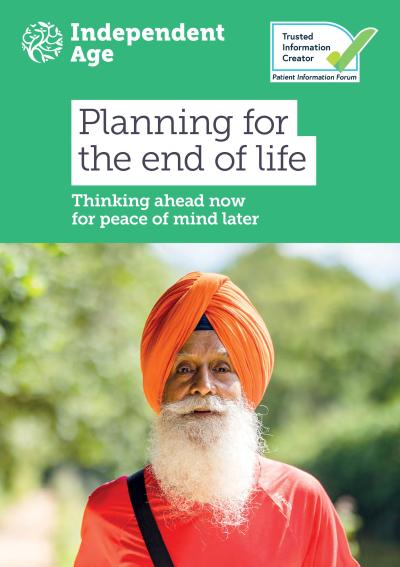Related publications

Future planning: Managing my affairs

People often want to make sure that they have put their affairs in order so they won’t put any extra stress on their family after their death. Some people find it easier to think about what will happen to their money and property than how they would like to be cared for at the end of their life, but both are important.
Talking about the end of life can be very emotional, both for the person who is nearing the end of their life and for their friends and family. Your friend or relative may avoid talking about it because they:
Don’t assume that there's no need to have the conversation because, for example, they think they don’t have anything to leave in a Will, or they have a particular faith so they’ll want to have a certain sort of funeral. It’s easy to overlook things or make wrong assumptions, so it’s good to talk things through to make sure you have a clear understanding of what they want. Discussing things out loud can be helpful for your friend or relative too, because they may be unsure of exactly what they want for themselves.
Talking things through can be a positive experience for both you and your friend or relative. The benefits of talking include that:
You might not know how to begin talking about end-of-life planning. Use triggers to introduce the subject – talk about something that’s happened to someone you know, TV programmes or news items. Ask questions that encourage your friend or relative to think about what they truly want:
Listen carefully to what they have to say. You don’t have to focus on a worst-case scenario, because this may make your friend or relative feel uncomfortable and sad about the future. Instead, you can frame your questions in a way that focuses on what matters most to them.
For more tips on how to raise the subject, read Compassion in Dying’s guide Starting the conversation.
There are many things to consider when planning for the end of life. These might include:
Your friend or relative’s wishes concerning their care and treatment can be recorded in:
They may benefit from support from a trained counsellor or organisations that deal with specific long-term conditions.

Read our guide Planning for the end of life for more information about why to plan, things to consider and where to get support.